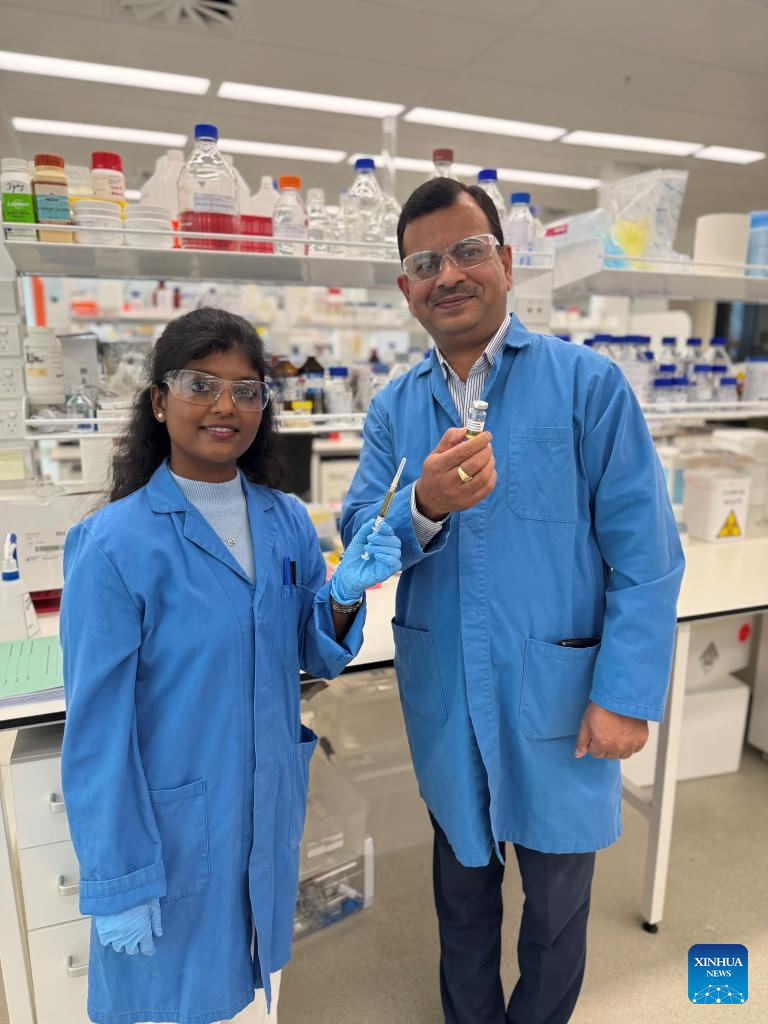Australian scientists develop weekly shot to transform Parkinson's care
Source: Xinhua
Editor: huaxia
2025-07-14 14:14:00

Sanjay Garg (R), lead researcher Professor from University of South Australia (UniSA)'s Center for Pharmaceutical Innovation, and PhD candidate Deepa Nakmode hold the injectable gel in the University of South Australia, in Adelaide, Australia, July 8, 2025. (University of South Australia/Handout via Xinhua)
CANBERRA, July 14 (Xinhua) -- Australian scientists have developed a weekly injectable drug that could transform care for the more than 8.5 million people worldwide living with Parkinson's disease.
The new weekly injectable maintains steady levels of key Parkinson's medications for seven days, potentially replacing multiple daily pills and improving both treatment consistency and patient quality of life, scientists at the University of South Australia (UniSA) said on Monday.
Hailed as a game-changer for Parkinson's care, the biodegradable formulation is injected under the skin or into muscle, steadily releasing medication to ensure consistent therapeutic levels and reduce the burden of frequent dosing, especially for elderly patients or those with swallowing difficulties, according to the UniSA study.
"Our goal was to create a formulation that simplifies treatment, improves patient compliance, and maintains consistent therapeutic levels of medication," said lead researcher Professor Sanjay Garg from UniSA's Center for Pharmaceutical Innovation.
The new weekly injectable for Parkinson's disease delivers steady doses of key medications, levodopa and carbidopa, over seven days, using biodegradable polymers for controlled, sustained drug release, said the research published in Drug Delivery and Translational Research, an official journal of the United States Controlled Release Society.
Lab tests showed over 90 percent of levodopa and 81 percent of carbidopa were released within a week. The implant degrades by more than 80 percent during this period and demonstrated no significant toxicity in safety evaluations.
"We're not just improving how the drug is delivered; we're improving patients' lives," Garg said, adding the new formulation is delivered with a fine needle, reducing discomfort and eliminating the need for surgical implants.
Researchers say the injectable could be adapted for other chronic diseases, such as cancer and diabetes, with clinical trials and commercial plans underway. ■



